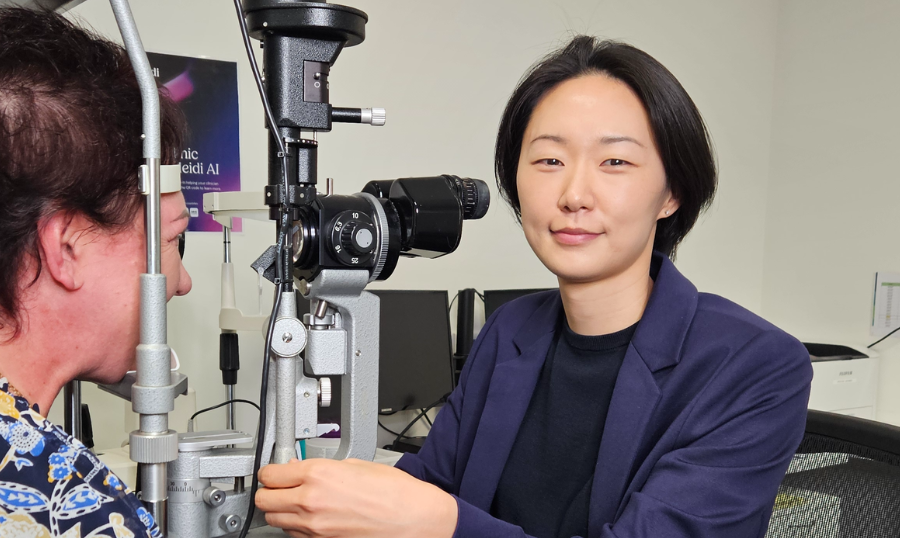Auckland Eye Welcomes Cornea and Anterior Segment Specialist Dr Bia Kim
Auckland Eye is pleased to welcome Dr Bia Kim, a highly trained Cornea and Anterior Segment Specialist, to our team.

At some stage, you have probably found yourself wondering why you have halos of little hairs around your eyes, aka ‘eyelashes’. Are they to keep the eye’s warm? Or are they just little moustaches for the eyes, purely for aesthetics? While it is a common misconception that the only purpose of eyelashes is to beautify your eyes, creating a more dramatic look to your face, you might be surprised to hear that these fine hairs serve a number of important functions including…
Much like the whiskers on a cat, the eyelashes are extra sensitive to being touched. With a reflexive and automatic response, the eyelashes send signals to the brain, providing a warning to close the eyelids before an external threat causes damage to your eyes. For example, the eyelashes tell your eyelids when they need to shut in the instances when an object (insect or sharp object) or particles in the air (like dust or sand) are about to fly into your eyes.
Eyelashes help to filter out the sunlight that shines onto your eyes. Although they provide some protective function from UVA and UVB rays, this protection is very minimal and no matter no matter how long or full your eyelashes, they cannot take the place of protective sunglasses!
The curved shape of the upper and lower row of eyelashes helps to keep the eyes healthy by slipping sweat and foreign particles out of the eyes.
Since a loss of eyelashes can often be a sign of a compromised level of immunity, another less-known function of the eyelashes if to serve as a warning sign of an actual disease process. For example, Demodicid (eyelash mites), trichiasis, sty (external hordeolum), distiasis, blepharitis and madarosis are some of the diseases or conditions which involve eyelashes.
Having these small hairs stick out in front of the eyes is believed to help minimize the flow of air over the eye surface, which helps reduce the evaporation of tears, especially in hot climates. Just look at a camel’s eyelashes!
These days it seems that eyelashes receive more attention for cosmetic purposes, evoking femininity and youth, rather than for their anatomical purposes. This is because, from an evolutionary standpoint, having long, dark and thick eyelashes makes the eyes appear larger and healthier, signaling physical and reproductive health. Furthermore, evolutionary biologists believe this feature translates to youth which then translates fertility and a women’s ability to bear children.
The importance of the eyelashes should never be underestimated. Without these tiny hairs, not only would we look a bit strange, as if something was missing from our faces, but also our eyes would be more vulnerable to foreign particles landing in our eyes and causing irritation and/or infections. Aside from their aesthetic purposes helping to attract the opposite sex, eyelashes most importantly, serve multiple protective functions which is why it is essential to take good care of them for your eye health.
Since eye makeup and eye makeup applicators harbor bacteria that can encourage eye infections, it is important you make sure you replace your mascara wand every 2-3 months. Eyelashes are nourished by oil glands and if those glands or hair follicles are blocked due to makeup not being properly removed, this will increase the risk of infection and other eye health complications. Therefore, to reduce the risk of infection, ensure that you wash off all eye makeup before going to sleep, especially anything sticking to your eyelashes.
For extra motivation to wash off all of your eye makeup every night, just take a look at this ‘mascara mishap’ on the American Academy of Ophthalmology website: https://www.aao.org/headline/week-in-review-mascara-mishap-survey-says-happy-ca

Auckland Eye is pleased to welcome Dr Bia Kim, a highly trained Cornea and Anterior Segment Specialist, to our team.

Discover how Auckland Eye is redefining inclusive healthcare by launching New Zealand’s first assistive website toolbar.

Macular degeneration is a leading cause of vision loss in older adults. There’s no cure, but its progression can be slowed. Here’s what to know.